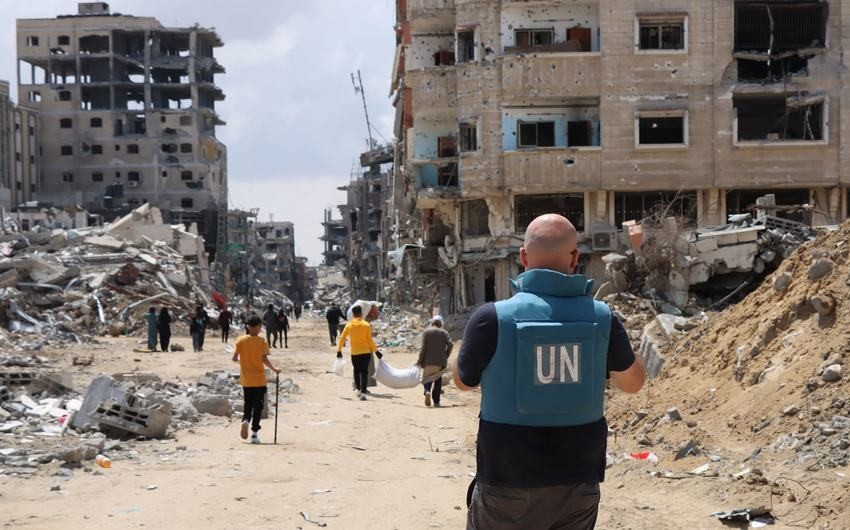"We clearly don’t manage to bring enough food into Gaza,” Corinne Fleischer told the Financial Times after returning from the shattered territory, citing access problems including the closure of most crossings, long delays at Israeli checkpoints and looting by gangs inside Gaza. Fleischer said the WFP needed to bring in 24,000 tons of food per month to feed 1.1mn people, or half Gaza’s population. UNRWA, the other main UN agency working in Gaza, is responsible for feeding the other half. "But in the last two months we brought in about half of what we require,” she said.
WFP faced several obstacles in delivering supplies to its Gaza warehouses, according to Fleischer. "We need more crossing points, very clearly, and that’s what we’re asking for,” she said.
"There’s also an issue of law and order to collect supplies from Kerem Shalom crossing [and avoid looters] and . . . to be able to move safely and at an acceptable speed within Gaza.” The IPC, an international advisory body which monitors hunger, warned on June 25 that 96 percent of Gaza’s population faced acute food insecurity at "crisis” level or higher, of which about 500,00 people were enduring "catastrophic” conditions.
"The risk of famine is still there because there’s a war and we’re not able to access frequently and sufficiently [the locations] where we need to go and there needs to be sufficient food to come in,” said Fleischer, whose organization supports 13 of the territory’s 18 bakeries and supplies more than 70 kitchens serving hot meals.
Fleischer described a journey she took with a convoy from Deir al-Balah in central Gaza to collect supplies arriving at the Western Erez crossing on the northern border with Israel. A trip that once would have taken 40 minutes instead took seven hours, she said, "because roads are destroyed” and they had to "wait for a green light at [the Israeli] checkpoints”. Fleischer said they wanted not only more crossings but for Israel to have "faster processing of aid and a much more streamlined operation at checkpoints” to speed up the movement of humanitarian convoys.
The WFP regional director added that compounding the problems of access were the recent evacuation orders issued by the Israeli military which have resulted in the closure of about 20 of her organization’s food distribution points, and the loss of access to one of its warehouses, which still contained food.
www.anews.az
Follow us !











